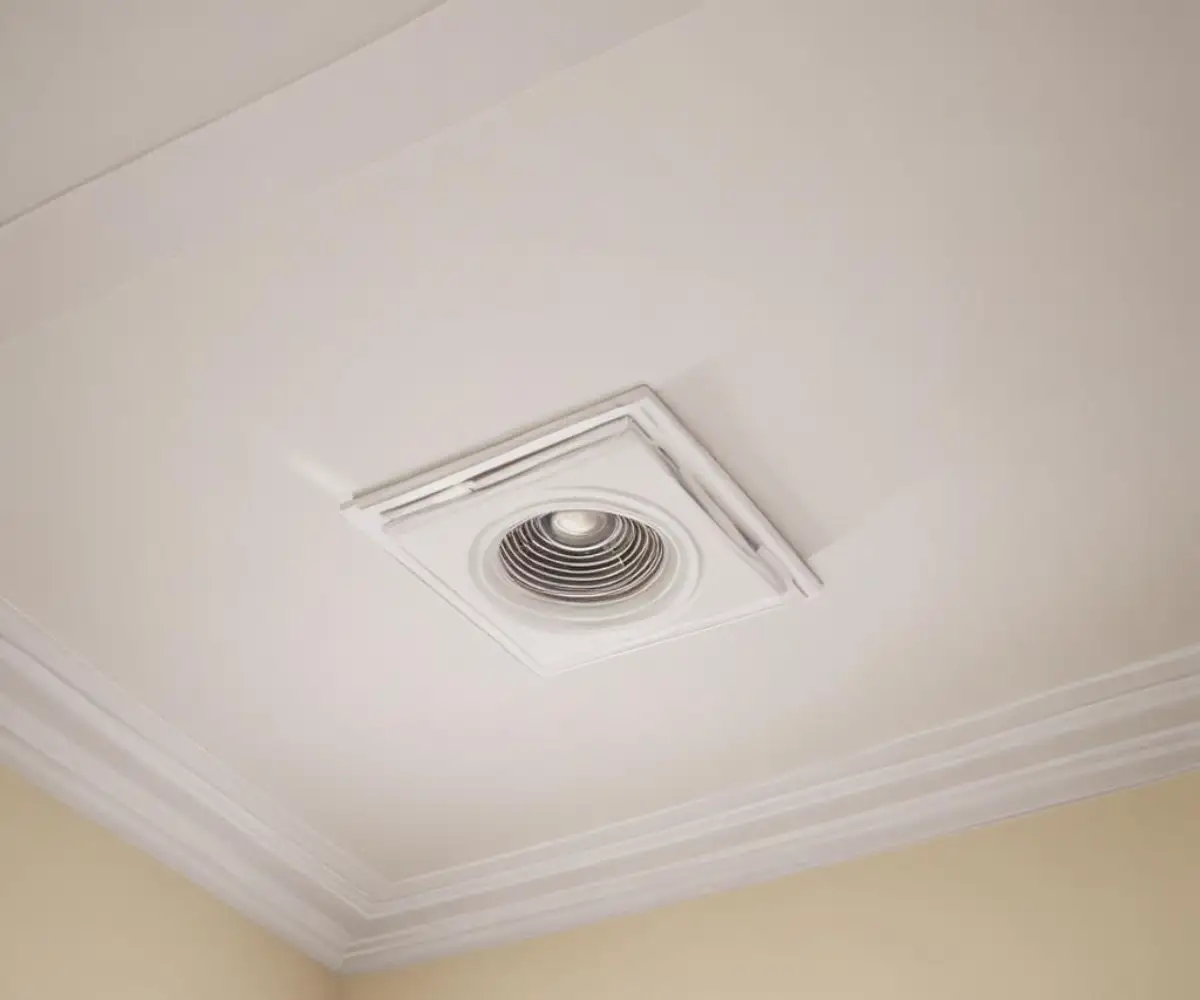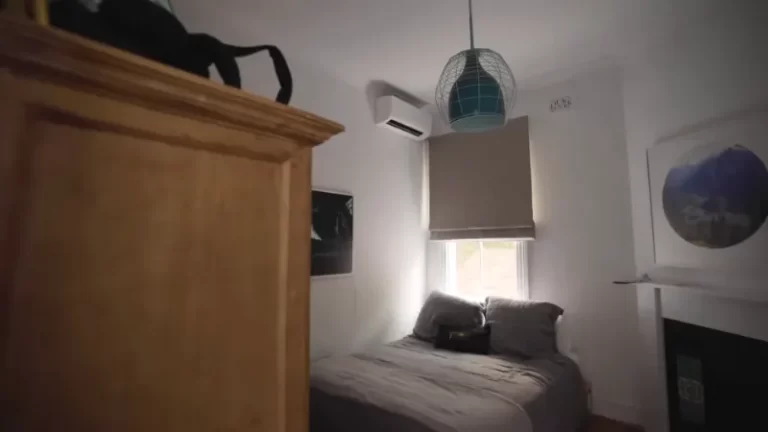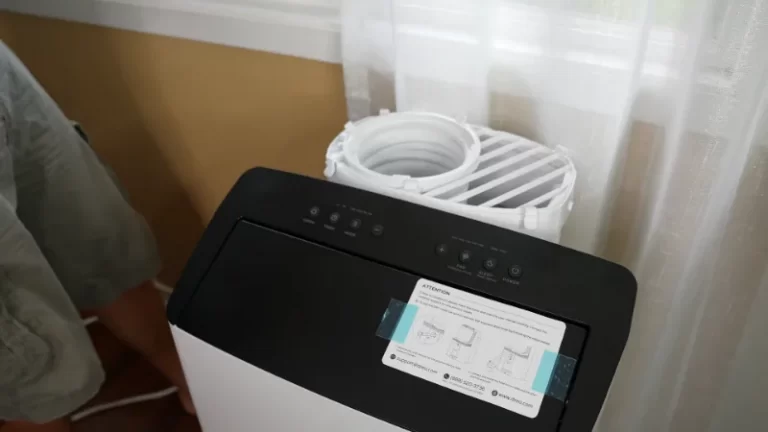High Pitched Noise from Ceiling? Your Sanity-Saving Guide
That incessant, high-pitched noise coming from your ceiling can be more than just an annoyance. It can disrupt your sleep, shatter your concentration, and turn your peaceful home into a source of stress. You’re not imagining it, and you’re certainly not alone in this frustrating experience.
The good news is that most of these maddening sounds have a logical explanation and a clear solution. This guide will walk you through the process of playing detective in your own home, identifying the source of that high-pitched whine, squeal, or chirp, and finally restoring peace and quiet. We’ll cover everything from simple fixes to knowing when it’s time to call in a professional.
You'll Learn About
First Steps: How to Pinpoint the Noise
Before you can solve the problem, you must find its exact source. High-frequency sounds are notoriously difficult to locate; they can seem to come from everywhere at once. Your first task is to narrow down the location and conditions of the noise.
Start by observing the pattern. Does the sound happen at specific times of the day or night? Is it constant, or does it come and go? Does it start when you turn on a specific appliance or use a particular faucet? Answering these questions is the first step toward a diagnosis.
The Breaker Box Test: Electrical vs. Everything Else
One of the most effective ways to start is by using your home’s circuit breaker. Go to your breaker box and shut off the power to your entire house. If the noise stops immediately, you know you have an electrical issue.
If the sound continues with the power off, you can rule out your home’s electrical system and focus on other potential culprits like plumbing or structural elements. If you do confirm it’s electrical, turn the main breaker back on and then flip the individual circuit breakers off one by one until the noise disappears. This will help you isolate the problem to a specific room or even a single faulty device.
The Usual Suspects: Common Electrical Culprits
If the breaker box test pointed to an electrical problem, you’re in luck. Many of these sources are easy to identify and fix. These are the most common offenders hiding in your ceiling.
The Smoke Detector’s Annoying Chirp
This is arguably the number one cause of a mysterious, intermittent high-pitched noise. Smoke and carbon monoxide detectors are designed to emit a sharp, loud chirp when their backup battery is low or when the unit has reached its end of life (usually around 10 years).
The chirp often happens once every 30 to 60 seconds, and because the sound can bounce off walls, it’s frequently hard to tell which unit is the culprit. Don’t assume it’s the one closest to you. Test each detector in your home by pressing the “test” button. Replace the backup batteries in all of them—if one is low, the others are likely not far behind.
Lighting: The Hum of Fixtures and Dimmers
Recessed lighting, ceiling fans with light kits, and especially fluorescent lights can be sources of high-pitched humming or buzzing. Older fluorescent light ballasts are notorious for this. Likewise, dimmer switches that aren’t compatible with the type of bulbs you’re using (especially LEDs) can cause a persistent buzz.
To check this, turn off the lights in the area where the noise is loudest. If the noise stops, you’ve found your source. Try replacing the bulbs first. If that doesn’t work, the issue might be with the fixture’s internal wiring or a faulty dimmer switch, which may require an electrician.
Ceiling Fan Squeaks and Whines
A ceiling fan can produce a range of noises, from clicking to humming to high-pitched squeaking. A squeak often points to a lack of lubrication in the motor bearings. A humming noise might be related to the fan’s capacitor or the use of an incompatible speed controller or dimmer switch.
First, turn the fan off to see if the noise stops. If it does, a thorough cleaning and tightening of all screws on the blades and housing can often solve the problem. If the noise persists, the fan’s motor may need lubrication, or an electrical component could be failing.

Plumbing Problems: Whistles and Squeals in the Pipes
If the noise continued when you shut off the power, your plumbing system is a likely suspect. Water pipes running through the ceiling joists can create surprisingly loud, high-pitched sounds when certain conditions are met.
The High-Pressure Whistle
One of the most common causes of a high-pitched sound from water pipes is excessive water pressure. When water is forced through a small opening or past a restriction at high speed, it creates a whistling or squealing sound. This often occurs when you turn on a faucet, flush a toilet, or when an appliance like a dishwasher or washing machine is filling up.
You can check your home’s water pressure with a simple gauge that screws onto an outdoor spigot. Ideal residential pressure is typically between 45 and 60 PSI. If it’s significantly higher, a plumber can install a pressure-reducing valve (PRV) to quiet the pipes and protect your appliances from damage.
Worn Washers and Valves
A worn-out washer or valve inside a faucet or toilet fill valve can also cause a high-pitched squeal. The water flowing past the degraded rubber or plastic part causes it to vibrate rapidly, creating the noise. The sound will typically only occur when that specific fixture is in use.
If you can isolate the noise to a single toilet or sink, the fix is often as simple as replacing the internal components, which is an inexpensive and straightforward DIY project. While some sounds are easy to locate, a persistent noise from the ceiling is more complex than figuring out how to muffle TV noise, which has an obvious source.
HVAC Headaches: Airflow and Mechanical Noises
Your heating, ventilation, and air conditioning (HVAC) system moves a massive amount of air through ducts that are often located in the ceiling. This makes it a prime candidate for generating high-pitched noises.
Whistling from Vents and Ducts
A high-pitched whistle coming from your ceiling vents is almost always a sign of an airflow problem. This “whistle” is created when the air is being forced through a space that is too small, increasing the air’s velocity. It’s the same principle as whistling with your lips.
The most common cause is a dirty, clogged air filter. When the filter is full of dust, your system has to work much harder to pull air through it, leading to whistling sounds at the return vents. Blocked or closed supply vents, debris in the ductwork, or even poorly designed ducts can also be the cause. Check your filter first, and ensure all your vents are open and unobstructed.
Blower Motor Shrieks
If the high-pitched noise is more of a screech or a shriek that starts when your HVAC system kicks on, you could have a serious mechanical issue. This sound often indicates a problem with the blower motor’s bearings, which may be failing due to age or lack of maintenance.
This is not a noise to ignore. A failing blower motor can lead to a complete system breakdown. If you suspect a motor issue, turn off your HVAC system immediately and call a qualified technician for an inspection.
Less Common Causes You Shouldn’t Ignore
While the sources above account for the vast majority of high-pitched ceiling noises, there are a few other possibilities to consider, especially if you’ve ruled everything else out.
Pests in the Attic or Ceiling
Rodents like mice or squirrels, and even some insects, can create high-pitched squeaking and chittering sounds. If the noise is accompanied by scratching or skittering sounds, you may have an unwelcome guest in your attic or ceiling void. Unlike a simple tapping noise in your roof space at night, which might be ducts expanding, sounds from pests are often more erratic.
Look for other signs of pests, such as droppings or visible damage in your attic or around the exterior of your home. If you suspect an infestation, it’s best to call a professional pest control service to handle the situation safely and effectively.
Structural Sounds
It’s important to note that most high-pitched noises are not indicative of a structural problem. Issues like a collapsing ceiling typically produce very different sounds, such as cracking, popping, or groaning. A high-pitched whine is almost never a sign of imminent structural failure, but if you have other worrying signs, investigating the cause is critical. Understanding the difference between a simple noise and a real threat, like a ceiling caving in, is key to your peace of mind.
Gas Leaks
In very rare instances, a high-pitched hissing or whistling sound could indicate a gas leak from a line running through the ceiling. If you hear a hissing sound and smell rotten eggs or sulfur, leave your home immediately, do not use any electronics or light switches, and call your gas company from a safe distance.
Summary of Causes and Solutions
To help you diagnose the issue at a glance, here is a breakdown of the most common causes of high-pitched ceiling noises and what to do about them.
| Potential Cause | Type of Noise | Primary Solution |
|---|---|---|
| Smoke/CO Detector | Intermittent, sharp chirp | DIY: Replace the backup batteries or the entire unit if it’s over 10 years old. |
| Light Fixtures/Dimmers | Constant, low-level hum or buzz | DIY: Replace light bulbs. If noise persists, call an electrician to check the fixture or switch. |
| HVAC Air Filter | Constant whistle when system runs | DIY: Replace the HVAC air filter. Ensure all vents are open and unblocked. |
| High Water Pressure | Whistling or squealing when water runs | Professional: Have a plumber check pressure and install a pressure-reducing valve (PRV). |
| Failing HVAC Blower Motor | Loud screech or shriek when system runs | Professional: Turn off the system immediately and call an HVAC technician. |
| Worn Toilet/Faucet Valve | Squeal isolated to one fixture | DIY: Replace the internal fill valve (toilet) or washer/cartridge (faucet). |
| Pests (Rodents/Insects) | Erratic squeaking, chittering, buzzing | Professional: Look for other signs (droppings) and call a pest control expert. |
| Ceiling Fan | Rhythmic squeaking or humming | DIY: Clean fan blades, tighten all visible screws. Lubricate the motor if necessary. |
When to Call a Professional
While many of these noises have simple DIY solutions, it’s crucial to know your limits. You should always call a qualified professional for issues involving your home’s main electrical system, gas lines, or major plumbing and HVAC components.
Call an electrician if: You’ve isolated the noise to a specific circuit but can’t find the source, the noise is coming from behind a wall, or you see sparks or smell burning. Call a plumber if: You suspect high water pressure, the noise is widespread throughout your plumbing system, or you see signs of a water leak. Call an HVAC technician if: The noise is a loud screeching or grinding, replacing the filter doesn’t help, or your system isn’t heating or cooling properly.
By systematically working through these potential causes, you can put an end to that high-pitched noise from the ceiling. Restoring quiet to your home will not only improve your quality of life but also ensure your home’s vital systems are functioning safely and correctly.


